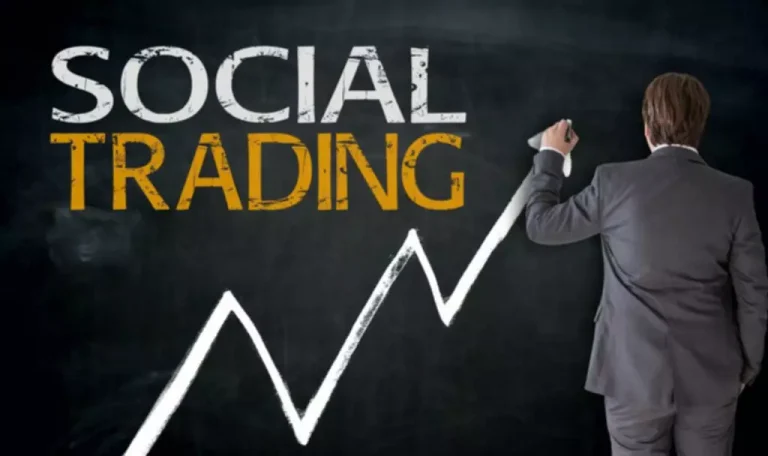Content
A completed application is necessary, along with various financial statements. This can include complete statements of shares outstanding and capital resources. A press release may have to be issued to notify shareholders of the decision. The fact that a company meets the quantitative initial listing standards does not always mean it will be approved for listing. The NYSE, for example, may deny a listing otc trade or apply more stringent criteria. Another factor with OTC stocks is that they can be quite volatile and unpredictable.
Advantages of trading OTC with StoneX Markets
OTC derivatives are private agreements directly negotiated between the parties without the need for an exchange or other formal intermediaries. This direct negotiation allows the terms of the OTC derivatives to be tailored to meet the specific risk and return requirements of each counterparty, providing a high level of flexibility. Penny stocks and other OTC securities are readily available for trading with many of the online brokerages, these trades may be subject to higher fees or some restrictions. That said, the OTC market is also home to many American https://www.xcritical.com/ Depository Receipts (ADRs), which let investors buy shares of foreign companies.
What are the different OTC markets?
These securities represent ownership in the shares of a foreign company. They are issued by a U.S. depositary bank, providing U.S. investors with exposure to foreign companies without the need to directly purchase shares on a foreign exchange. OTC markets encompass a wide range of financial instruments, including stocks, private bonds, derivatives, currencies, and commodities. This diversity offers traders access to a variety of markets and investment opportunities not always available on standard exchanges. Moreover, the OTC market facilitates trading in unlisted stocks, providing opportunities to invest in smaller, potentially emerging companies.
Is Over-The-Counter Trading Really Decentralized?
Investments in digital assets can be risky and you may lose your investment. As the cryptocurrency market matures, regulatory compliance and security are becoming increasingly important. Many OTC desks operate under strict compliance frameworks and offer enhanced security measures to protect client assets. This includes KYC (Know Your Customer) and AML (Anti-Money Laundering) procedures, as well as secure custody solutions for the assets being traded. OTC trading allows for more flexible terms compared to exchange-based trading. Parties can negotiate the price, settlement times, and other conditions of the trade to suit their specific needs.
OTC trading, as well as exchange trading, occurs with commodities, financial instruments (including stocks), and derivatives of such products. Products traded on traditional stock exchanges, and other regulated bourse platforms, must be well standardized. This means that exchanged deliverables match a narrow range of quantity, quality, and identity which is defined by the exchange and identical to all transactions of that product. This is necessary for there to be transparency in stock exchange-based equities trading. Electronic trading has changed the trading process in many OTC markets and sometimes blurred the distinction between traditional OTC markets and exchanges. In some cases, an electronic brokering platform allows dealers and some nondealers to submit quotes directly to and execute trades directly through an electronic system.
You are directed to seek independent investment and tax advice in connection with derivatives trading. A company must meet exchange requirements for its stock to be traded on an exchange. A number of companies are traded as OTC equities because they’re unable to meet exchange listing requirements, such as the threshold for the number of publicly traded shares or the minimum price per share.
- These provide an electronic service that gives traders the latest quotes, prices and volume information.
- This method of trading, while distinct from traditional exchange-based transactions, offers several unique benefits.
- On an exchange, only formalized companies with perfect quality and quantity are traded, whereas, in OTC markets, contracts are tailored to meet both the buyer’s and seller’s agreed needs.
- This category includes defunct companies that have ceased operations as well as “dark” companies with questionable management and market disclosure practices.
- An over-the-counter derivative is any derivative security traded in the OTC marketplace.
OTC markets allow investors to trade stocks, bonds, derivatives, and other financial instruments directly between two parties without the supervision of a formal exchange. This freewheeling format provides prospects but also pitfalls compared with exchange-based trading. Apple Inc. (AAPL) and Microsoft Corporation (MSFT) traded OTC, as did many long-forgotten penny stocks. While many companies that trade OTC have share prices under $5 (called penny stocks), that’s not always the case. There are a variety of other reasons the company may not be able to meet the requirements of an exchange. The most common cause might be delinquent financial reports to the Securities and Exchange Commission (SEC).
The major regulatory reform underway in the United States, European Union, and other developed financial markets are directly addressing these issues. In others, post-trade clearing of OTC trades is moving to clearinghouses (also known as central clearing counterparties). The role of the dealer in OTC markets is not, however, being explicitly addressed except through possibly higher capital requirements.
When companies do not meet the requirements to list on a standard market exchange such as the NYSE, their securities can be traded OTC, but subject to some regulation by the Securities and Exchange Commission. The company was first established in 1913 as the National Quotation Bureau (NQB). For decades, the NQB reported quotations for both stocks and bonds, publishing the quotations in the paper-based Pink Sheets and Yellow Sheets respectively. The publications were named for the color of paper on which they were printed. In September 1999, the NQB introduced the real-time Electronic Quotation Service. Options trading entails significant risk and is not appropriate for all customers.
Since the exchanges take in much of the legitimate investment capital, stocks listed on them have far greater liquidity. OTC securities, meanwhile, often have very low liquidity, which means just a few trades can change their prices fast, leading to significant volatility. This has made the OTC markets a breeding ground for pump-and-dump schemes and other frauds that have long kept the enforcement division of the U.S. Suppose you manage a company looking to raise capital but don’t meet the stringent requirements to list on a major stock exchange. Or you’re an investor seeking to trade more exotic securities not offered on the New York Stock Exchange (NYSE) or Nasdaq.
FINRA is a not-for-profit, non-governmental regulatory body that was authorized by the legislation that created the Securities and Exchange Commission (SEC). The OTCBB is a place for broker-dealers to make offers to buy and sell equity of companies that report to the SEC, but are not listed on the stock exchange. The company changed its name to OTC Markets Group in 2010 and now provides an electronic quotation platform for the broker-dealers in its network.
An advantage of the OTC market is that non-standard quantities of stock or shares can be traded. We should also note that exchanges in the OTC market only serve as intermediaries. Generally, they don’t provide delivery guarantees for investors, and the credit risk needs to be borne by investors themselves. Lack of regulation in some OCT markets may lead to opaque quotes, making it more difficult for investors to defend their rights in the event of disputes.
This form of trading has gained popularity among institutional investors, high-net-worth individuals, and even some retail traders due to its flexibility, privacy, and the ability to handle large orders. Exchange-listed stocks trade in the OTC market for a variety of reasons. Institutions and broker-dealers don’t necessarily want to publicize their trading strategies. If a large institution or brokerage firm attempted to make a block trade on an exchange, the market might react in such a way that pushes prices in a direction unfavorable to the institution or firm.
Unlike exchanges, OTC markets have never been a “place.” They are less formal, although often well-organized, networks of trading relationships centered around one or more dealers. Dealers act as market makers by quoting prices at which they will sell (ask or offer) or buy (bid) to other dealers and to their clients or customers. That does not mean they quote the same prices to other dealers as they post to customers, and they do not necessarily quote the same prices to all customers. Moreover, dealers in an OTC security can withdraw from market making at any time, which can cause liquidity to dry up, disrupting the ability of market participants to buy or sell. Exchanges are far more liquid because all buy and sell orders as well as execution prices are exposed to one another.
Advisory services as well as the trading of futures and options is available through various subsidiaries of StoneX Group Inc. including but not limited to the FCM Division of StoneX Financial Inc. The trading of over-the-counter products or swaps is available through subsidiary StoneX Markets LLC to individuals or firms who qualify under CFTC rules as an eligible contract participant. Securities must comply with strict listing conditions set by the stock exchange to get listed, and issuers must meet strict disclosure obligations.













